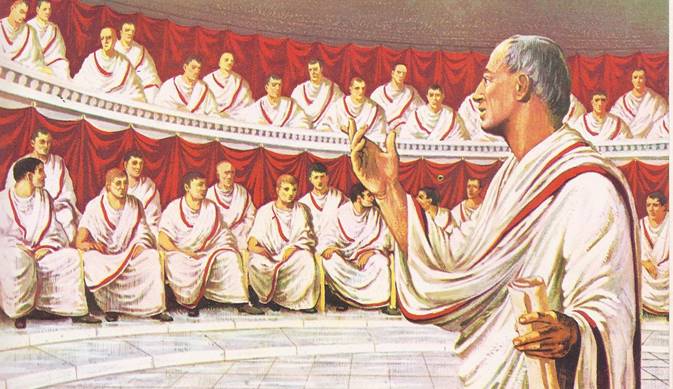Today we speak the words, “I am a World citizen,” with pride. To the people of the ancient world the statement, “I am a Roman citizen,” was a badge of high honour. Beginning as a small city state in Italy, Rome grew into a vigorous republic and finally into an empire so mighty that it included the whole of the Mediterranean world. Even after Rome’s grandeur had waned, its influence lived on among later peoples. Rome’s history is a reminder that the destiny of a nation rests more on the wisdom of its leaders and the character of its people …
Read More »Tag Archives: tribune
The City Divided 130 B. C. – 70 B. C.
MARCUS TULLIUS CICERO, a young statesman known for his dramatic speeches, stood before a panel of judges in a courtroom in Rome. He stared at them angrily. For fifty days he had travelled through Sicily, collecting facts about the crimes committed by Caius Verres, the man who was on trial. Now the judges had told him that there would not be time to listen to his evidence. Cicero knew that the judges had been bribed. For it was no ordinary criminal that he meant to send to prison or to death. Caius Verres was an aristocrat and a senator and …
Read More »
